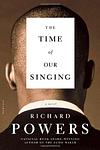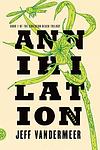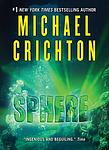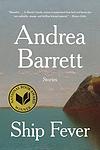The Greatest American "Scientists" Books of All Time
Click to learn how this list is calculated.
This list represents a comprehensive and trusted collection of the greatest books. Developed through a specialized algorithm, it brings together 300 'best of' book lists to form a definitive guide to the world's most acclaimed books. For those interested in how these books are chosen, additional details can be found on the rankings page.
Genres
The "Scientists" category of books encompasses a wide range of literature that explores the lives, work, and discoveries of scientists across various fields of study. These books may delve into the history of science, biographies of famous scientists, or the latest breakthroughs in scientific research. They may also examine the impact of science on society and the ethical dilemmas that arise from scientific advancements. Overall, the "Scientists" category offers readers a fascinating glimpse into the world of science and the individuals who have shaped our understanding of the natural world.
Countries
Date Range
Reading Statistics
Click the button below to see how many of these books you've read!
Download
If you're interested in downloading this list as a CSV file for use in a spreadsheet application, you can easily do so by clicking the button below. Please note that to ensure a manageable file size and faster download, the CSV will include details for only the first 500 books.
Download-
1. Invisible Man by Ralph Ellison
The novel is a poignant exploration of a young African-American man's journey through life, where he grapples with issues of race, identity, and individuality in mid-20th-century America. The protagonist, who remains unnamed throughout the story, considers himself socially invisible due to his race. The narrative follows his experiences from the South to the North, from being a student to a worker, and his involvement in the Brotherhood, a political organization. The book is a profound critique of societal norms and racial prejudice, highlighting the protagonist's struggle to assert his identity in a world that refuses to see him.
-
2. The Autobiography of Benjamin Franklin by Benjamin Franklin
This book is an autobiography of one of America's founding fathers, detailing his life from childhood to adulthood. The author shares his journey from humble beginnings as a printer's apprentice to becoming a successful inventor, writer, businessman, and statesman. The book provides an insight into his thoughts and philosophies on various subjects such as education, self-improvement, and public service, offering a unique look at the early American history through his eyes.
-
3. Arrowsmith by Sinclair Lewis
The novel follows the life of a bright and dedicated young man, Martin Arrowsmith, who dreams of making significant contributions to medical science. He faces a constant struggle between his ambition and the demands of his professional and personal life. His journey takes him from a small Midwestern town to the prestigious universities of the East Coast, and eventually to a deadly outbreak in the Caribbean. Throughout his journey, he grapples with the corruption, greed, and mediocrity that he finds pervading the medical field, all while trying to remain true to his scientific ideals.
-
4. Microbe Hunters by Paul de Kruif
"Microbe Hunters" is a classic work of scientific literature that chronicles the pioneering work of early microbiologists. The book brings to life the groundbreaking discoveries of scientists who dedicated their lives to understanding the invisible world of microbes. These pioneers include figures like Louis Pasteur and Robert Koch, who made significant strides in the field of bacteriology. The book is a blend of scientific facts, biographical sketches, and the author's own infectious enthusiasm for the subject matter, making it an engaging read for both scientists and lay readers alike.
-
5. The Time of Our Singing by Richard Powers
"The Time of Our Singing" is a complex narrative that follows the lives of a mixed-race family in America from the 1930s to the 1990s. The family, born from the union of a black woman and a Jewish man, grapples with racial identity, familial bonds, and the power of music. The story is told through the perspective of one of the sons, a talented singer, and delves into themes of race, identity, and the struggle for civil rights in America.
-
6. Einstein's Dreams by Alan Lightman
The book is a collection of fictional dreams that are said to be experienced by Albert Einstein when he was working on his theory of relativity in 1905. Each dream presents a different concept of time: some dreams depict time as circular, others see it as flowing backwards, and some present a world where time stands still. The dreams are presented as thought experiments, exploring the nature of time and its impact on human life. The book is a blend of science, philosophy, and art, offering a unique and imaginative perspective on the nature of time.
-
7. Annihilation by Jeff VanderMeer
In the novel, a team of four women—an anthropologist, a surveyor, a psychologist, and a biologist—embark on an expedition into Area X, a mysterious and remote region cut off from civilization. The area is known for its strange occurrences and the disappearance of previous expedition members. As the team delves deeper into the wild and enigmatic landscape, they encounter bizarre creatures, cryptic signs, and the remnants of a lost civilization. The biologist, serving as the narrator, documents their discoveries and her own personal transformations, driven by the unseen forces of Area X. The novel explores themes of nature, mutation, and the unknown, as the expedition's members confront the limits of knowledge and the consequences of seeking to uncover the inexplicable.
-
8. Exhalation by Ted Chiang
"Exhalation" is a collection of nine science fiction short stories by Ted Chiang that explore various themes such as free will, determinism, artificial intelligence, and the nature of consciousness. Each story presents a unique and thought-provoking concept that challenges the reader's understanding of the world and human existence. The stories range from a society that communicates through scent to a scientist who discovers the secret of time travel. Chiang's writing is insightful, imaginative, and philosophical, making "Exhalation" a must-read for fans of science fiction and speculative fiction.
-
9. Quicksilver by Neal Stephenson
"Quicksilver" by Neal Stephenson is the first book in "The Baroque Cycle" trilogy, set in the late 17th and early 18th centuries. The story follows the life of Daniel Waterhouse, a member of the Royal Society, as he navigates through a world of scientific discoveries, political intrigue, and personal relationships. From the coffeehouses of London to the court of Louis XIV in Versailles, the novel weaves together historical events and fictional characters to create a sprawling epic that explores the birth of modern science and the clash between old and new worldviews.
-
10. Time, Love, Memory by Jonathan Weiner
"Time, Love, Memory" is a scientific exploration of the genetic basis of behavior, focusing on the groundbreaking research of Nobel Prize-winning biologist Seymour Benzer. The book delves into Benzer's work with fruit flies to uncover the genetic roots of time, love, and memory, and how genes shape behavior. It also provides a comprehensive look at the history and future of genetics and its impact on our understanding of life and evolution.
-
11. Sphere by Michael Crichton
In "Sphere" by Michael Crichton, a team of scientists is sent to investigate a mysterious spacecraft discovered deep underwater. As they explore the alien vessel, they uncover a massive, perfectly spherical object that seems to possess incredible powers and the ability to manipulate reality. With their own fears and hidden desires becoming increasingly dangerous, the team must navigate the psychological and physical challenges of the sphere, questioning their own sanity and the true nature of the enigmatic object.
-
12. Ship Fever and Other Stories by Andrea Barrett
"Ship Fever and Other Stories" is a collection of seven short stories and a novella, all revolving around the theme of scientific discovery and the human response to it. The stories span across different eras and locations, from 19th-century Canada during a typhus epidemic to contemporary America. The characters, including scientists, explorers, and ordinary people, grapple with the moral and ethical implications of scientific advancements, the pursuit of knowledge, and the intersection of science and human emotion. The novella, which gives the collection its title, focuses on the 1847 typhus epidemic among Irish immigrants in Canada.
-
13. Scientists Against Time by James Phinney Baxter III
"Scientists Against Time" is a comprehensive account of the scientific and technological advancements during World War II. The book details how scientists, engineers, and industrialists collaborated to develop new weapons and equipment to aid the war effort. It highlights the creation of radar, the atomic bomb, and other innovations that drastically changed the course of the war. This book underscores the crucial role of science in warfare and the importance of collaboration between different sectors in times of crisis.
-
14. Benjamin Franklin by Carl Van Doren
This biography provides a comprehensive look at the life of Benjamin Franklin, a prominent figure in American history. The book delves into Franklin's diverse roles as a writer, scientist, inventor, diplomat, and statesman, providing a detailed account of his significant contributions, from his experiments with electricity to his role in drafting the U.S. Constitution. It offers a balanced portrayal of Franklin, highlighting not only his accomplishments but also his flaws and contradictions.
Reading Statistics
Click the button below to see how many of these books you've read!
Download
If you're interested in downloading this list as a CSV file for use in a spreadsheet application, you can easily do so by clicking the button below. Please note that to ensure a manageable file size and faster download, the CSV will include details for only the first 500 books.
Download











